- Home
- Philip Pullman
The Haunted Storm Page 7
The Haunted Storm Read online
Page 7
The flow ceased for a second; his face was creased as if in pain, his fists were clenched, and Matthew saw sweat starting on his forehead. The silence in the church was profound. The priest’s voice had never faded or faltered once, but plunged majestically onwards like the course of a river in flood, powerful and a little terrifying. For no reason at all Matthew wondered suddenly if he had heard about the murder, and if he had, what he thought about it… The priest continued.
“And man in the midst of nature, intent on his lusts and their trivial satisfactions – man loves the world, and we call it natural that he should; man hates God, and we would call it unnatural if he did not. This is where we have come to, following our instincts downwards, like water; into the depths. And we are exhorted to take comfort in each other! We are encouraged to call ourselves immortal! This is Satanic irony; for man, man, is no more remarkable, truly, than the lowliest worm in the muddiest pond – no more godly – no more noble; he is only an object of love, of craving; and a form of darkness.”
Abruptly he stopped. He had been speaking for nearly fifteen minutes. His voice had risen in the latter part of his sermon to a kind of hysterical sing-song, and as he enumerated his lists of the forms of darkness he beat unconsciously on the pulpit rail, emphasising the rhythm of the words with a sound like muffled hammer blows on a coffin, or like the heart of the world itself beating faster under the onslaught of his condemnation. The men and women in the church were obviously a little taken aback by the sermon – either that, or angry, or irritated, for Matthew saw people turn to one another and whisper as the flood of words came to an end. Matthew himself was both wondering how far the priest’s disgust with the world really went and trying to fathom the depths of the expression on his face. For as he said the last words, “and a form of darkness,” his lips came together sensually and his eyes opened halfway, and he looked suddenly obscene – as if he were lapped in a drugged sexual ecstasy – while all the time there hovered around his eyes and mouth the shadows of a distant, satisfied cynicism.
He said a few more words, indifferently, with such sudden lack of interest that Matthew could not even make sense of them, and then turned almost theatrically – “flounced,” – Matthew thought – to face the altar, and muttered swiftly “And now to God the Father, God the Son, and God the Holy Ghost…” and swung round again to announce the last hymn.
As he left the pulpit and went to the altar for the last prayers he seemed much more in command of himself than he had been at the beginning of the service, when Matthew had felt a kind of pity for his apparent nervousness. Now he looked oddly just like a woman who was sexually aroused: his eyes were bright, startlingly light and clear, and his cheeks a little flushed. His movements were brisk, cold, and offhand. He gave the collection-plate to the sidesman and followed him down the aisle to the vestry, ignoring Matthew’s gaze but seeming to acknowledge it by the secretive, self-centred, narcissistic smile that constantly showed itself and vanished at the corners of his mouth.
“I’ll go and speak to him,” Matthew thought, “I’ll go and ask him – it’ll be something done – Christ, yes, it’ll be a movement, I’ll be doing something for once.”
The priest did not go into the porch to say good-morning to the congregation, but stayed in the vestry for so long that Matthew wondered if he had gone out of the church by another door. Eventually, however, when everyone but the sidesman and Matthew had gone, he came out, still wearing his cassock, and still with the peculiar expression half of desire and half of satisfaction on his face.
Matthew stood up and stepped out of the pew, and the priest stopped in surprise.
“Good-morning!” he said. “We haven’t seen you here before, have we?”
Matthew was uncertain what to say, but the man’s tone was friendly enough. At close quarters, he looked even more like an actor, for some reason – there was a kind of over emphasis about his features, which was hard to pin down – but his eyes, which Matthew now saw were a very light shade of greyish-blue and slightly protruberant, did not seem to carry as much theatricality as his nose, mouth, and chin; they were withdrawn, dreamy, even mystical. Something in his face, close to, prompted a dim memory in Matthew, perhaps of a dream, but something far-off and strange – at any rate, he’d spoken, and was waiting for an answer.
“No, not here – well, not for a long time, that is,” Matthew said. “I used to come here when I was a boy. I’m staying with my great-uncle at the moment. Have you been vicar here for long?”
“Two years or so, I think – two years at Whitsun, it’ll be. My name is Cole, Canon Cole: do I know your great-uncle, I wonder?”
“Mr. Locke, of Locke and Son, the elder Mr. Locke. But I don’t think he’s one of your parishioners; I mean, I don’t think he comes to church, because he preaches at chapels.”
“Ah yes! He’s quite famous, you know. I have met him, but as you say, he doesn’t come –”
“Forgive me for saying so,” burst in Matthew impatiently, “but I felt I had to speak to you after hearing your sermon – I was fascinated – what you said about the gap between God and the world, it struck me as being so extraordinary that I couldn’t help waiting behind to ask you to tell me more about it. I know it’ll probably strike you as a waste of time; but I don’t want an immediate course of free lectures, or anything; you must be very busy and as I don’t even live here I’ve got no claim on your time at all. But if you could spare me a few minutes one day this week, perhaps, or anytime you can, I’d be very grateful… You see, I’ve got a sort of God-mania, or religion-mania, that troubles me, and I’ve a feeling I’ll get more help from priests than from doctors… would you mind very much?”
He spoke in a low voice, hoping that the old sidesman, who was gathering prayer-books from the pews and straightening the hassocks, would not hear him; he felt harassed, too, by the figure he could see seated in the porch: the church door was slightly ajar. The Canon. Frowning, stared at the ground, his forefinger pressed thoughtfully along his cheek. After a second he said:
“Mmm… what is your name?”
“Matthew Cortez.”
“Cortez – is it Spanish? Yes; mmm…Certainly I can spare the time, I would be glad to… time! Certainly! But tell me, what do you think of God now? Why did the – er – disunity I mentioned ring true for you? You believe in God, do you?”
“Yes! That’s not the problem! The problem is, why does He seem to be dead? It’s a religious problem, I suppose, but it’s also a philosophical problem, and a historical problem, and probably an economic problem as well for all I know, and a physiological and biological problem too; but why is it? Why? If I sound hysterical, I’m sorry; there’s nothing worse than being talked at by a neurotic. But you see, I’ve decided to make a move; outwards, that is, from myself to this hidden God; and I don’t know where He is. So if you could explain your own conception of God to me I’d be able to see a little more clearly, perhaps.”
“Yes, yes, that’s excellent, I see that plainly. Now look –” he took out a little leather diary from an inside pocket and looked through it, muttering “Monday – Tuesday – no – Wednesday? Would you like to come to the Rectory on Wednesday evening – you know where it is, do you? – say at eight o’clock, after supper? The evening is the best time, perhaps…I find it easier to think in the evenings.”
He made a note and put the diary back in his pocket.
“‘Thank you,” said Matthew, feeling at a loss for words all of a sudden. “It’s very kind of you.”
“That’s quite all right,” said the Canon quietly, moving towards the door. “On Wednesday evening, then...” He opened the door and let Matthew go through into the porch. The sunlight lay like a golden dust-sheet over half the stone floor and over the seat along the right-hand side, and sparkled brilliantly where it caught the glass front of the notice-board. The square patch of sky he could see ahead was so intensely blue that his eyes dazzled for a second and he blinked, and he felt the fresh wind
on his face, chilly and exhilarating… and then he saw who it was who was sitting there, and nearly fainted.
He heard the Canon say “My daughter, Elizabeth” – but instantly and more completely than he would ever have believed possible he was transported back to that wild beach with all its dreamlike intensity and felt, swirling around him like clouds of fire, the same, indisputably the same impulse of passion that had enveloped him then. “I can’t let it go,” he thought, “not this time! I’ll make love to her, I’ll take her away, I’ll tell her everything! “ And, conscious of the desperate and imperative need to act, act decisively, he stepped forward and shook her hand as if they’d never set eyes on each other before, although his heart was beating furiously and his legs could hardly support him.
She was wearing a white sweater and dark velvet trousers; her hair was tied loosely with a grey silk ribbon at the back of her neck, and she looked cool and self-possessed, almost indifferent, as she took his hand. She looked, in fact – and it was the complete and total opposite of what she’d been before, and of how he had pictured her ever since – sophisticated; but all around her slim figure there hovered ghosts, dishevelling her hair, wetting her face, her checks, her neck with rain and tears, making the outline of her body waver and flow like a flame, so that he longed to hold it in his hands, to contain it, and, pressing it to his breast, to defy darkness and the devil and time to come between them again.
She stood up to shake his hand and make the pretence of being introduced, of talking politely about the weather; but inside she was trembling with fear and joy. She felt utterly naked, as if not only her clothes but her body too and her habits and her personality and her memory, everything, had been suddenly whirled away in the April wind – everything but the fragile, obstinate nerve-pattern she thought of as her soul – everything but the very centre of her: and that be longed irrevocably to Matthew.
Matthew! Matthew Cortez! She knew his name at last! But it was so unreal to see him! He seemed more tense and cold than she remembered, and his eyes, wider and more penetrating; but then, she thought, as she walked with her lather down the path to the lych-gate and they said good bye for the moment, what did she look like? Had she borne the separation faithfully? And would he tell her?
Chapter 5
Despite the shock of coming across her again and the reawakening of all his questions about her and desires for her, the main image that haunted Matthew’s mind in the next few days was that of the murder. It was inevitable, in a way, because he saw nothing of her, whereas news and speculation about the murder was all over the village; there was a police car patrolling up and down all day long, and detectives from Silminster were using the village school as a temporary headquarters. According to what he could gather from gossip and the reports of the newspapers, there were no clues at all as to the murderer, but speculation thrived on the murder itself. Matthew heard from a number of people – from the postmistress, from the greengrocer, from the newsagent – that the girl had been raped, but there was no mention of rape in the newspaper articles.
He did not like to question Peter Parrish about it, firstly because of an odd fastidiousness in his nature, which he’d never really noticed until now, and secondly because he liked Peter too much to pester him. Peter had obviously been badly shaken by the whole business – by the police investigation as well as by actually finding the dead girl; as he had feared, they were far from being pleased that he had moved the body, and made him feel clumsy, blundering and stupid. Matthew did not know Peter all that well – he had been more friendly with Peter’s younger brother Robert, who was about Matthew’s own age and who was now, Matthew thought, a teacher – but he felt very sorry for him. It had upset him much more than his parents.
All the same, the murder gradually assumed a fearful kind of centrality in Matthew’s thoughts and, half unconsciously, he brooded on it. He was not sure how he visualised it, or even quite what was meant by the word “murder”. The important thing for him was the way it had suddenly intruded into the world. It was like a rainstorm coming from a perfectly clear blue sky, or like a footprint appearing on a clean patch of sand in front of his eyes. It jolted him because it seemed to exist in a more powerful way than other things, and because there was no reference to it, none at all, in the rest of nature. It was alien, he felt, in the same way as Canon Cole’s God was alien; and if it could not be said, because of this very alien-ness, that the latter was immediately recognisable as good, then it could not really be said – he thought – that the former was recognizably evil… He did not recognise it as evil; he did not recognise it at all. Perhaps good and evil were only relative, after all; perhaps they were as bound up with earth, with matter, as the law of gravity was; and perhaps, in the domain of the spirit, they were no more valid, no more relevant than that.
He pondered on it obsessively in the next couple of days. He spent the time doing some gardening for his uncle and helping Mr. Parrish on the farm, and when he was on his own, he sank into reveries of fruitless argument, where the same questions endlessly posed themselves, like menacing trees in a dark wood. He could not find any point at which the murder – or his continual, preoccupied return to religion – or even the meaning of his own life – came through, so to speak, broke out of the circle; but they frightened him increasingly. Perhaps Canon Cole would be able to tell him, he thought; perhaps his uncle would; but somehow his relations with Harry were unsatisfactory, even a little strained. It was odd. The old man was busy for most of the day, it seemed, and in the evenings he was so withdrawn that he spoke hardly at all, He was perfectly pleasant when he did speak, and friendly and attentive when Matthew addressed remarks to him. But it seemed to Matthew that Harry neither really heard nor really answered, that he was rapt and engaged somewhere else; and he both envied the old man his detachment and was unnerved by it.
However, one thing was certain; and that was, that he had seen her. Strangely, the main feeling the encounter gave rise to in his breast was not one of pleasure, of joy, of delight, or anything like that: he felt a rush of those emotions, to be sure, in the instant of seeing her: but afterwards, when his heart had found its own level again, what possessed him most was a plain satisfaction in the matter of his own survival. He had lasted, and that was almost enough.
On Wednesday afternoon, he decided to go for a walk. He was feeling restless, and besides, it was a grey, windy day, and he loved the wind. Harry was away in Silminster on some business or other; and Matthew left the house at about two o’clock, putting on his shabby overcoat and but toning it up to the neck. The wind made it flap around his knees, and blew his hair about. He set off along the main road away from Silminster, intending to take a side road that led up to the right and out on to the moors.
The road wound slowly upwards between high hedges. It was quiet. A few cars came along this way, but for most of the time it was absolutely deserted. Spots of rain fell every now and again, but the wind was what dominated the sky and the hedges, and in fact soon dominated Matthew too. His thoughts ran sluggishly and after he had been walking for twenty minutes or so he had effectively stopped thinking at all. He gave himself up to the sensations of coldness and movement and emptiness, bareness, sparse ness, which the day evoked in him. There were buds and little green leaves on the hedges, but he did not notice them; he was happier relishing instinctively the great sweep of the grey sky, as grey as a goose-feather, and the vast indifference of the wind. Leaves – buds – flowers – birds – and people too, especially people – he was glad to feel rid of them for a time. He felt light, extended, magnified by the great and enveloping non-life of the sky and the wind. Yes, that was why he loved them so much! It was the fact that although they coloured everything, although it was they who gave to a scene or a landscape its particular mood and atmosphere, there was absolutely no life in them. The sky was as free of the taint of life and death as a stone was, and the wind, though it gusted and blew and shook the trees and played with his coat and his hai
r like a child, wantonly, it did so from no motives at all, in the purest and plainest indifference; and this above all things was delightful to Matthew.
He wandered along, staring up at the sky or letting his eyes gaze down the road without seeing anything. He was not thinking, but all the while he could not help being aware of things. And something he heard or saw or perceived entirely clairvoyantly must have turned his mind again to the subject of the girl. Elizabeth, she was called; yes, that suited her, or it suited that rather daunting sophistication of hers. Whether it suited the memory of the girl on the beach he was not sure. He wondered if he’d ever see her like that again, or feel like that again himself; ah, that was beyond life – outside it – just like the wind, just as cold, just as arbitrary, just as absolute.

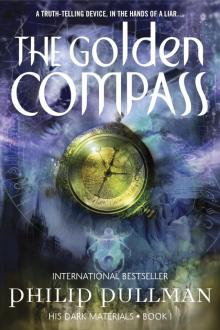 The Golden Compass
The Golden Compass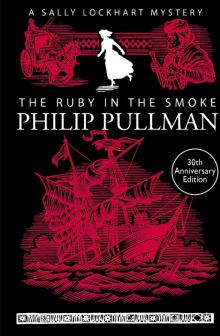 The Ruby in the Smoke
The Ruby in the Smoke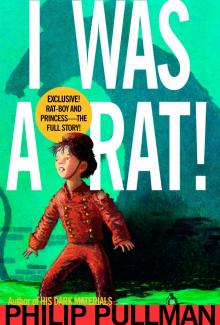 I Was a Rat!
I Was a Rat!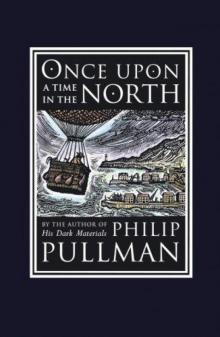 Once Upon a Time in the North
Once Upon a Time in the North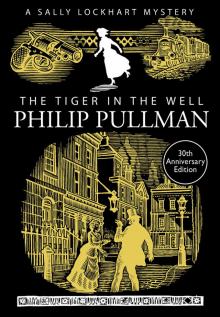 The Tiger in the Well
The Tiger in the Well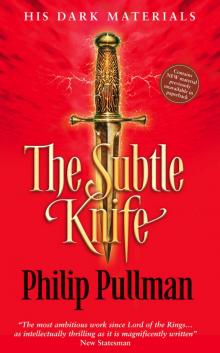 The Subtle Knife
The Subtle Knife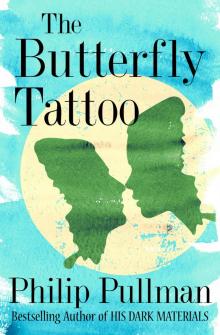 The Butterfly Tattoo
The Butterfly Tattoo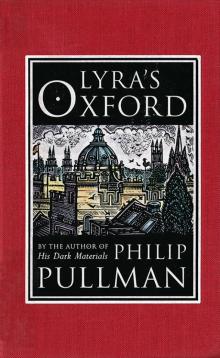 Lyra's Oxford
Lyra's Oxford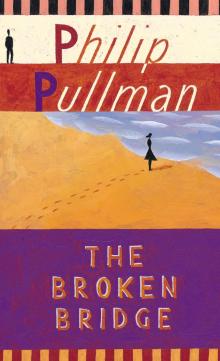 The Broken Bridge
The Broken Bridge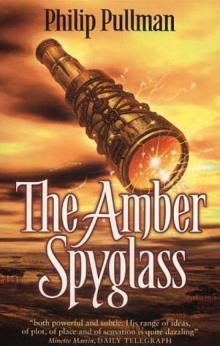 The Amber Spyglass
The Amber Spyglass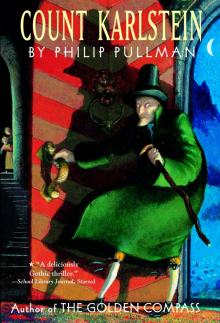 Count Karlstein
Count Karlstein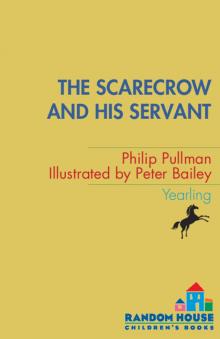 The Scarecrow and His Servant
The Scarecrow and His Servant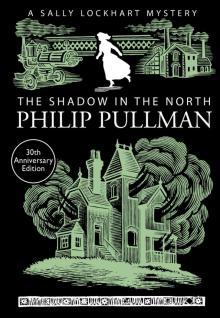 The Shadow in the North
The Shadow in the North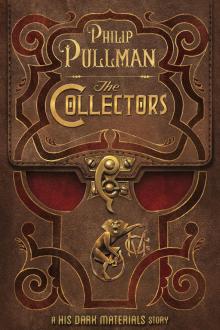 The Collectors
The Collectors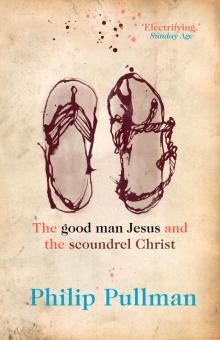 The Good Man Jesus and the Scoundrel Christ
The Good Man Jesus and the Scoundrel Christ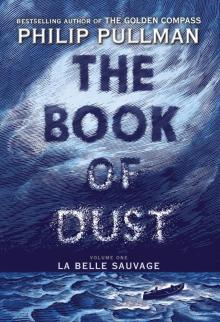 La Belle Sauvage
La Belle Sauvage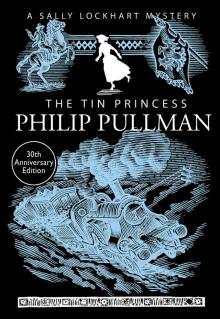 The Tin Princess
The Tin Princess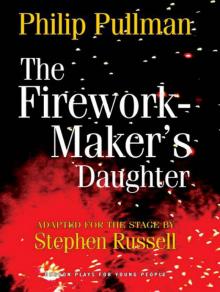 The Firework-Maker's Daughter
The Firework-Maker's Daughter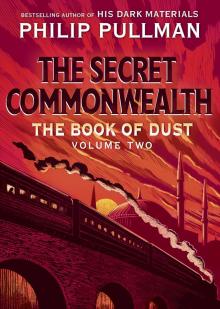 The Book of Dust: The Secret Commonwealth (Book of Dust, Volume 2)
The Book of Dust: The Secret Commonwealth (Book of Dust, Volume 2)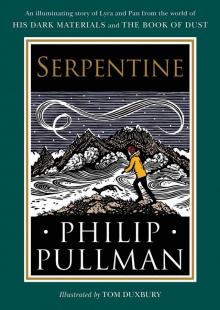 Serpentine
Serpentine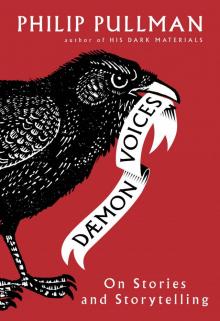 Daemon Voices
Daemon Voices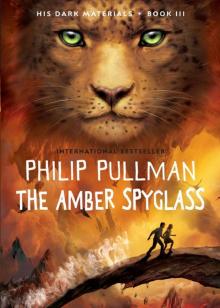 The Amber Spyglass: His Dark Materials
The Amber Spyglass: His Dark Materials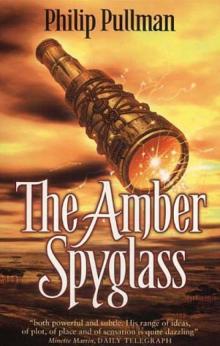 The Amber Spyglass hdm-3
The Amber Spyglass hdm-3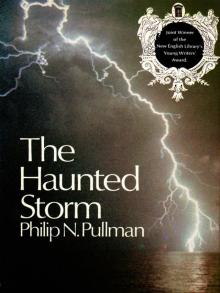 The Haunted Storm
The Haunted Storm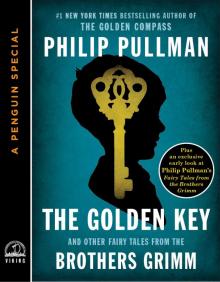 The Golden Key
The Golden Key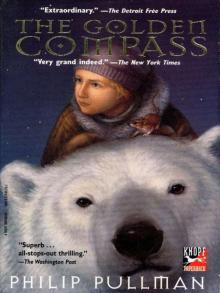 His Dark Materials 01 - The Golden Compass
His Dark Materials 01 - The Golden Compass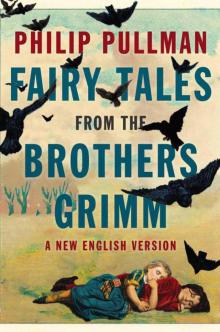 Fairy Tales from the Brothers Grimm: A New English Version
Fairy Tales from the Brothers Grimm: A New English Version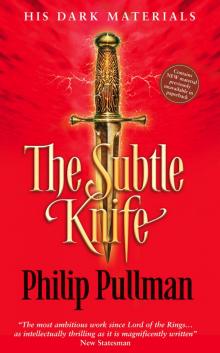 His Dark Materials 02 - The Subtle Knife
His Dark Materials 02 - The Subtle Knife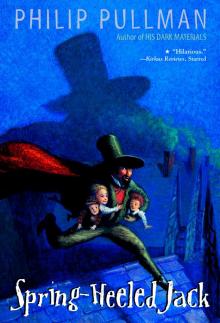 Spring-Heeled Jack
Spring-Heeled Jack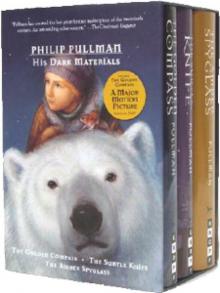 The Golden Compass hdm-1
The Golden Compass hdm-1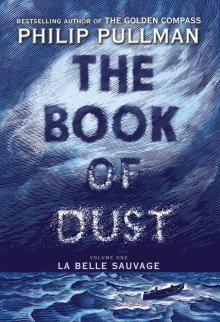 The Book of Dust, Volume 1
The Book of Dust, Volume 1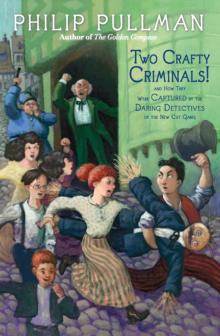 Two Crafty Criminals!
Two Crafty Criminals!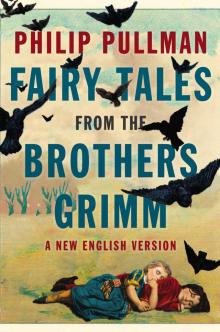 Fairy Tales from the Brothers Grimm
Fairy Tales from the Brothers Grimm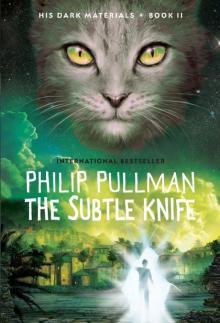 The Subtle Knife: His Dark Materials
The Subtle Knife: His Dark Materials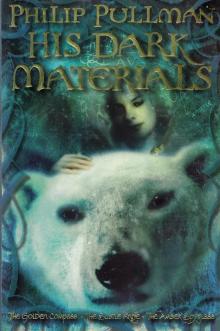 His Dark Materials Omnibus
His Dark Materials Omnibus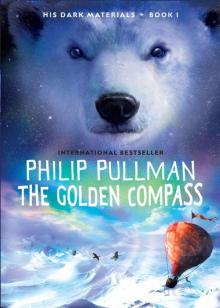 The Golden Compass: His Dark Materials
The Golden Compass: His Dark Materials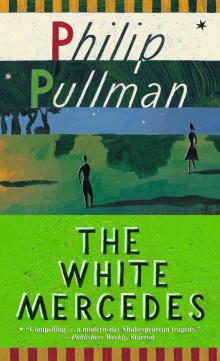 The White Mercedes
The White Mercedes